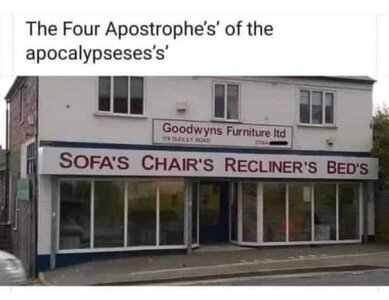^
From the BBC History magazine:
Most historians believe that punctuation as we know it today was invented to show how a text should be read aloud.
By the fifth century BC, Greek playwrights were using some basic symbols to show where actors should pause, and the scholar Aristophanes of Byzantium (c257– c185 BC) invented a formal system of punctuation. He also designed accents to aid pronunciation.
Most other ancient written languages in their original forms – Sanskrit, Arabic, Korean, Chinese, Japanese, etc – used little or no punctuation, though some Chinese scrolls from around 400–300 BC sometimes used symbols to denote chapter and sentence endings.
Punctuation in its modern form owes a lot to the Renaissance and, particularly, the Italian scholar and printer Aldus Manutius (1449–1515), but also to the
Reformation and the
printing of Bibles in local languages. These were, of course, intended to be read aloud. Our modern system of punctuation didn’t emerge till the 19th century.
English/American punctuation is now used more or less wholesale across Europe; aspects of it have been adapted in most other parts of the world.
Answered by Eugene Byrne, author and historian
This Q&A was first published in the April 2013 issue of BBC History Magazine
(For some time now the Brits, as some of you may have noted, have dropped the use of some commonly used periods, such as in cf., e.g., i.e., etc., fig., tel., Dr., Ltd., Mr., no. My American English spell check has underlined the etc without a period in the second paragraph above.)





